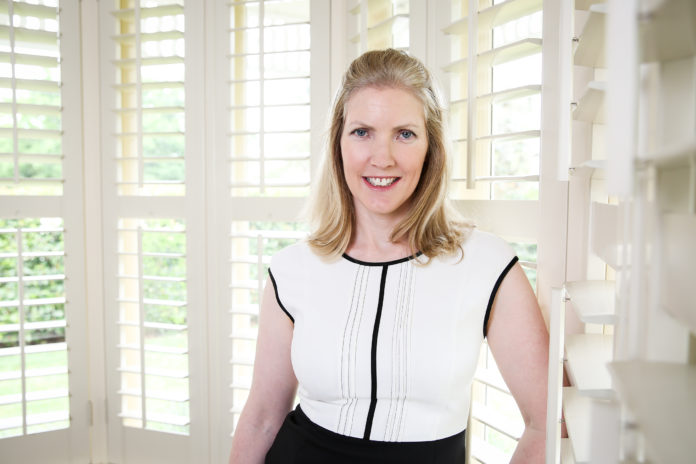Founded in 2014 in Melbourne by ex-RBS London executives Charlotte Petris and Andrew Petris, Timelio has hit over $250 million in invoice financing for small businesses. The startup has raised over $5.5 million in equity funding from prominent investors.
As CEO of Timelio and a member of Australia’s Fintech advisory group, Charlotte Petris gives an insight to Harsimran Julka into her business and challenges before the fintech ecosystem in the ANZ region:
Excerpts from an exclusive interview:
Timelio came about on the basis of a simple observation that financial services firms weren’t serving customers very well: borrowers were being charged very high rates, returns were weak for investors, the customer experience was poor, and the intermediaries were not very efficient.
Timelio exists to improve the financial wellbeing of business owners. We do this by improving cash flow for businesses and enabling them to get paid immediately, without waiting 30, 60 or 90 days for customers to pay.
We offer an online marketplace that matches businesses with a network of investors who compete against each other to offer funding.
We also work directly with large corporates to offer early payment to their entire supply chain.
Cashflow is one of the top pressures facing businesses and access to finance remains challenging. Businesses that have large corporates as their customers typically have to wait up to 90 days (or more!) for invoices to be paid.
On average, businesses are waiting 57 days for customers to pay. This long wait creates cash flow problems and they are unable to meet demand and expand production while awaiting payment.
Timelio was founded by myself and Andrew Petris, a husband-wife team.
We are both Chartered Accountants and previously worked together at RBS in London. During my career, I worked in many large banks and financial institutions.
I identified all the ways finance, people and culture could be done differently in the industry.
Right now, I am focussed on challenging those traditional ways of doing finance – I’m fascinated by the coming together of finance and technology and the scale of change this brings to society.
Q: How many customers or invoices have you already served/financed?
I’m excited to share that we’ve recently hit $250 million in invoice funding since our launch, just over 3 years ago and funded in excess of $20 million to Australian businesses last month alone!
Our customers range from early stage, high growth business, through to more established publicly listed companies.
These businesses are across a wide range of industries, from consulting, software development, wholesale to construction and labour hire.
This milestone is confirmation Australian businesses have been looking for funding outside of the traditional finance providers to help them reach their growth ambitions.
The additional $250 million in the hands of businesses stimulates jobs growth and economic expansion.
Q: How did you manage finances for starting the business? How much has the company raised so far?
Andrew and I self-funded the business at the start. Once we were up and running with happy customers we were in a good position to raise capital to accelerate the growth of the business.
The $5.5 million of equity funding has been raised from prominent investors, including Alex Waislitz’s Thorney Investments, John Dahlsen, former ANZ board director and Anthony Thomson.
Anthony is an experienced entrepreneur with a track record of building successful, challenger businesses.
He is the founder and former chairman of Atom Bank, the UK’s first mobile only app-based bank and founder of Metro Bank.
We are very fortunate to have investors with a wealth of experience and knowledge who share our vision, are passionate about fintech and disrupting traditional finance models.
Q. How much return can an investor expect by financing an invoice?
There are few options for investors in Australia & New Zealand, particularly in fixed income.
Despite Australia having one of the largest superannuation industries in the world, close to $2 trillion, it has under-performed global peers in returns generated for investors.
A significant portion of the funds are held in cash deposits, providing inflation adjusted returns of close to zero.
Timelio enables access to an uncorrelated, liquid asset class previously only available to banks and specialist finance companies.
Our investors are global and have the option to invest directly on the platform, where they actively select which invoices to buy, or into the Timelio Capital Fund.
The Fund offers wholesale investors exposure to investment into a diversified portfolio of discounted invoices.
The Fund targets net returns of 7% to 9% per annum.
Q.What are the current revenues of the company? And what are its plans/goals for the financial year 2018?
Our focus this year is also to continue to build awareness of not only our product, but a whole new alternative finance industry that is developing in Australia and New Zealand that can benefit both businesses and consumers.
We have been building foundations for scale and exploring expansion opportunities that align with our growth strategy. Building out the team is of course so important and we’re always looking for awesome people to join us.
Q. As a member of Fintech Advisory Group of Australia, how do you see the prospects of fintech industry in the ANZ region? Are there any regulatory challenges?
Fintech is a global landscape. It’s so important to think globally not just for fintech, but any business these days.
The challenge is that fintech is very broad and is a highly regulated industry.
If Australia and New Zealand want to lead the Asia (and Pacific) region in terms of innovation, which in turn means jobs growth, regulation plays a key role.
Regulation needs to catch up and keep up with industry developments to ensure local FinTech’s are not forced to look offshore for opportunities in a more friendly environment.
It’s important to continue building awareness, trust and credibility amongst FinTech players and the industry as a whole.
To achieve this takes time and requires a change in behaviour and regulatory support.
The FinTech industry is still developing in many markets but the pace of change will be driven by the local economic conditions.
Businesses and consumers currently have an existing relationship with a traditional bank, so it is often the first place they think of when seeking finance.
However, the trend is moving away from having a relationship with one financial provider, which is key to the disaggregation of financial services.
The rise of FinTech has been driven by increasing customer expectations and the faster pace of technological evolution.
This really highlights where traditional finance companies have left a gap in the market of unmet customer needs, requiring the latest in technology to deliver a better value proposition.
For a long time, financial services have been about buying a product, with little or no service. With powerful technology companies like Google, Apple and Facebook influencing other parts of the customers lives, they now are demanding similar levels of personalised digital interactions from their financial services.
feedback: connect@startupanz.com
For more on Timelio, you can reach out Charlotte Petris, on Twitter at – @charpetris




![[Post Pandemic]: How Australia’s Univs Can Recover From Travel Ban](https://startupanz.com/wp-content/uploads/2020/12/nep-2020-what-does-the-new-policy-mean-for-learners-and-indias-education-system-218x150.jpg)







